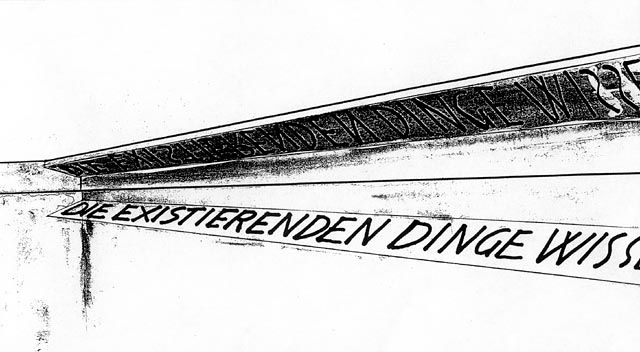Michelangelo Pistoletto
:
Installation in the Government District
Back
Information
The two-stage competition provided the background to the artistic intervention in St. Pölten, for which seven artworks by Austrian artists were recommended for realisation. These projects are by Josef Danner, Bruno Gironcoli, Richard Hoeck, Hans Kupelwieser, Christoph Steffner, Thomas Stimm and Heimo Zobernig. Five commissions for interiors were awarded directly, to Gunter Damisch, Franz Graf, Brigitte Kowanz, Eva Schlegel and Walter Vopava. The winning project in a separate competition for the design of the chapel (1995) is by Arnulf Rainer. Additional existing artworks by Franz Xaver Ölzant, Oskar Putz and Ruth Schnell are also to be found in the Regierungsviertel. Works by Dara Birnbaum and Michelangelo Pistoletto, also selected by the first jury, are not realized.
Pistoletto had intended to place a strip of concrete on the northern facade of the parliament building. On the lower side of the facade facing the water the text "The Existing Things - Do They Know They Exist" would only be legible on reflection. Physically and conceptually the pond would have become a mirror in Pistoletto's sense. However, realization of the project could no longer be scheduled by the head of the construction departement. Since the early sixties, the mirror has been an essential element in Michelangelo Pistoletto's work. In St. Pölten this phenomenon of reflection with the text mentioned above would serve to facilitate identification by creating a link between site, history, task, etc. in a sort of existential dimension with flexible transitions. As the artist said referring to tis 'Progetto Arte' that has been under way since 1994: "Today, on the threshold to the next millenium, I see art as a project of rapprochement and unification of everything what is detached and opposing. I think that it must find its presence on a universal level again. 'Progetto Arte' is based on the assumption that art is the most precise and most all-embracing manifestation of thinking..." (Michelangelo Pistoletto).

